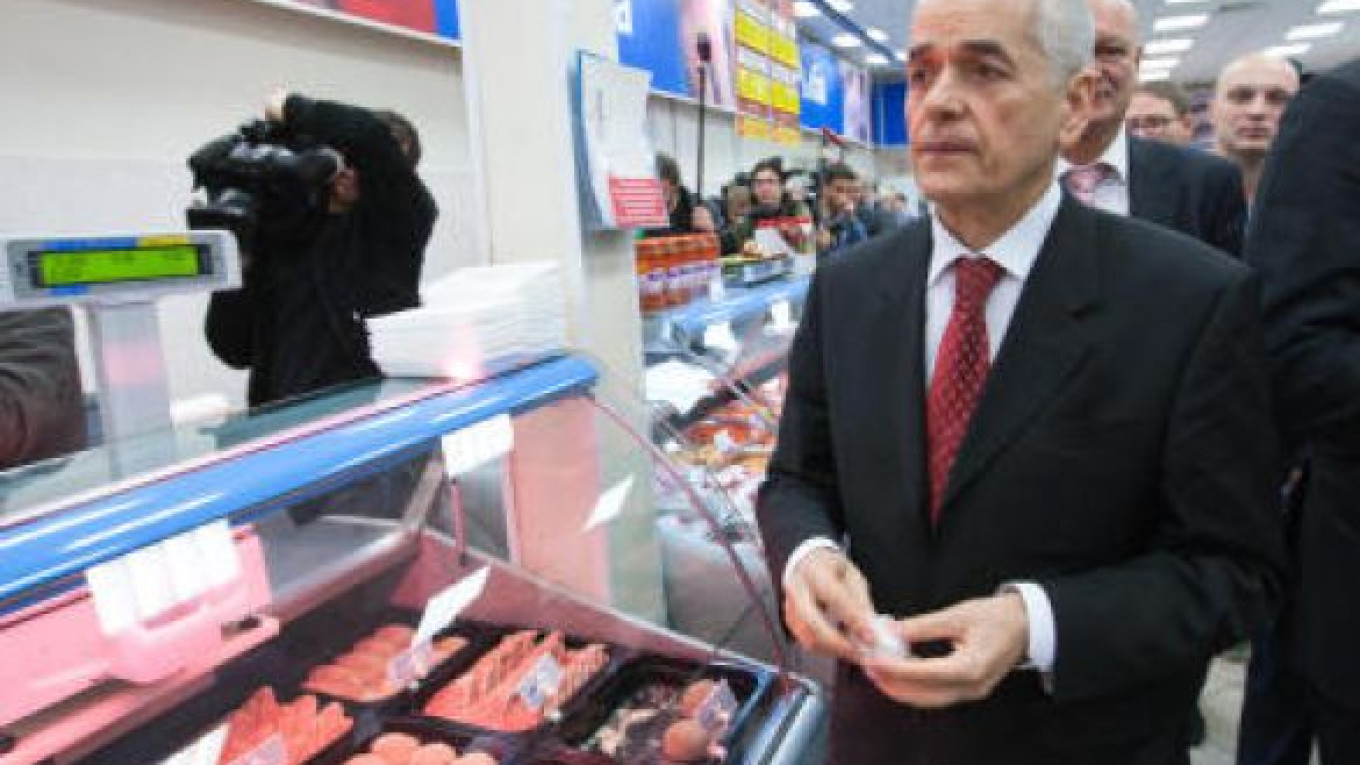The sanitary doctor, known for dishing out unorthodox health warnings over the years, was dismissed because an annual contract that he signed had expired, spokeswoman Natalya Timakova told Russian news agencies.
But the decision actually was made because Onishchenko was running afoul of Medvedev too often, an official close to the Kremlin told Vedomosti. Onishchenko started trade wars with countries that Medvedev was trying to establish closer economic ties with, refusing to take orders from anyone but President Vladimir Putin, the official said.
Read our list of Onishchenko's 10 most memorable warnings.
Deputy Prime Minister Olga Golodets, who has accompanied Medvedev to China, announced that Onishchenko had quit Tuesday (See related ). She said his term had come to an end, prompting a flurry of jokes from bloggers who quipped that the doctor was past his expiration date.
Onishchenko, 63, denied that he had been dismissed, saying that the "strange individual" who made the announcement was in no position to determine his future career.
Putin's spokesman, Dmitry Peskov, said Onishchenko's work was highly valued by the Kremlin and that he had not seen any documents relating to the dismissal.
Health Minister Veronika Skvortsova said earlier Wednesday that she expected Onishchenko to continue to work in a prominent position in Russia's health care system.
Medvedev's spokeswoman said Onishchenko's deputy, Anna Popova, would take over as acting chief of the consumer watchdog. Golodets had announced Popova's pending promotion Tuesday.
Onishchenko — who previously advocated the use of flu masks as an "accessory" for women's faces and advised Russians to avoid public protests for fear of catching flu — has a soured relationship with Golodets, and the conflict is likely to damage his chances of securing a senior position in future, Vedomosti reported.
A Message from The Moscow Times:
Dear readers,
We are facing unprecedented challenges. Russia's Prosecutor General's Office has designated The Moscow Times as an "undesirable" organization, criminalizing our work and putting our staff at risk of prosecution. This follows our earlier unjust labeling as a "foreign agent."
These actions are direct attempts to silence independent journalism in Russia. The authorities claim our work "discredits the decisions of the Russian leadership." We see things differently: we strive to provide accurate, unbiased reporting on Russia.
We, the journalists of The Moscow Times, refuse to be silenced. But to continue our work, we need your help.
Your support, no matter how small, makes a world of difference. If you can, please support us monthly starting from just $2. It's quick to set up, and every contribution makes a significant impact.
By supporting The Moscow Times, you're defending open, independent journalism in the face of repression. Thank you for standing with us.
Remind me later.


